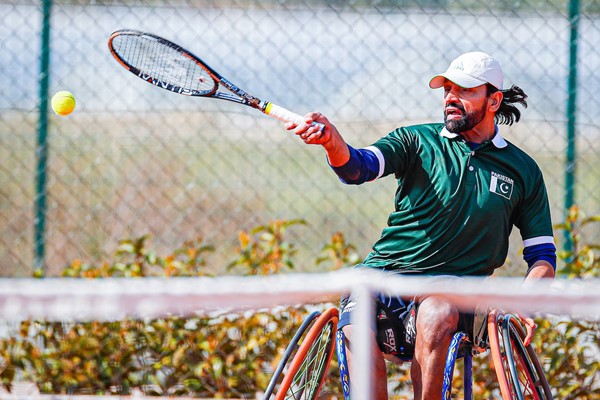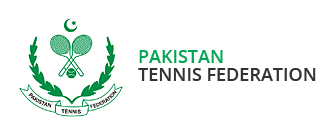
While the BNP Paribas World Team Cup may be over for another year, behind some of the main headlines – such as Japan’s first women’s title and South Africa’s quads becoming the first African team to reach a World Team Cup final – there are plenty of other stories of the ITF’s flagship wheelchair team event inspiring players from developing wheelchair tennis nations and helping make a difference to their lives.
The World Team Cup Qualification Event in Antalya, Turkey in March, saw Pakistan make its World Team Cup debut.
“It was the first time for a Pakistan team to participate in such an event in 75 years of history of Pakistan,” says Asif Abbasi, the winner of one main draw singles title and two second draw singles titles on the UNIQLO Wheelchair Tennis Tour between 2017 and 2020.
“It was a great honour to be the first to represent Pakistan in the event. History was created when I became the first ever Pakistani to win three international wheelchair tennis tournaments so far, to achieve a world ranking of 82 and to be in the top 100 in the world in 2018. To be the part of the team who participated first time in World team Cup Qualification event was another great honour.”
Abbasi took up wheelchair tennis in April 2017 and lives and plays the majority of his tennis in Britain, where he’s won three UNIQLO Wheelchair Tennis Tour draws to date. But he is a proud Pakistani and, understandably, he and his teammates’ proudest moment in Antalya came when winning their round-robin tie against India 2-1.
“In the decider, we were not very strong but managed to win by giving our all and that resulted in a great victory. We came fourth (of seven nations) in our Asia group. That was our achievement. But apart from that we were honoured to meet the ITF wheelchair team and met old and new friends.
“My teammates Fida Hussain and Mohammad Irfan started their wheelchair tennis journeys in Pakistan about three years back. They are very hard working and dedicated players. That was the first time ever they had played and witnessed wheelchair tennis internationally. They learnt many things during this event,” adds Abbasi, who is currently the only player from Pakistan on the UNIQLO Wheelchair Tennis Rankings for men’s singles.
“As I am an LTA qualified Level 3 tennis coach and have international playing experience and training in wheelchair tennis coaching, I am glad that I could help them with the wheelchair movements and right technique and tactics to play matches during the qualification event,” the 45-year-old continues.
“I hope for their training and methods to improve in the future and hope that by having good coaching and playing more matches they will get better. I also hope we will find new players after this successful World Team Cup event.”
Aside from on-court rivalries and ambitions to achieve the best result possible for your country, the World Team Cup has a rich history of creating and nurturing life-long friendships among players. This was also evident in Antalya.
“The players from India are very nice, and really good players,” says Abbasi. “I had met them before the qualification event, and we have a great camaraderie. They are known by Manoj (Manojkanth Somasundaram, runner-up in the 2020 UNIQLO Spirit Award) and they are also great friends. There were nice gestures from both nations’ players during our World Team Cup qualifying fixture.”
The debut of Pakistan at the World Team Cup Qualification Event this year is, it is hoped, the start of much more to come.
“The Pakistan Tennis Federation has initiated a programme in Karachi and they have trained and provided budding players with an opportunity to learn wheelchair tennis,” says Abbasi. “This programme is in other cities, as well, but there are many challenges which they are facing – for example, access to sports wheelchairs, funding to run the programmes, developing more disabled players, a transparent and professional approach and, above all, they need wheelchair tennis experienced, trained and qualified coaches to teach wheelchair tennis to disabled players.
We have great hopes for the future of Pakistan wheelchair tennis,” he adds. “After (the qualification event) many young disabled people contacted me on social media and asked me to help them to learn wheelchair tennis. I would love to train and share my knowledge with Pakistani players, so we can develop them to compete at the international level.
“But they also need sponsorships which help them to focus and devote their time to tennis. To achieve this, we need help from national and international organisations to fund the programmes so Pakistan can rise in wheelchair tennis.”
